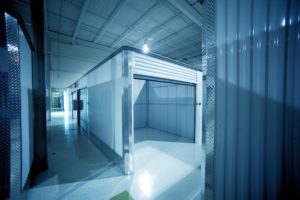 If you’re looking to rent a self-storage unit and have a number of delicate, sensitive, or high-value items, then a basic unit which makes little or no provision for fluctuating temperatures and humidity probably isn’t the best bet.
If you’re looking to rent a self-storage unit and have a number of delicate, sensitive, or high-value items, then a basic unit which makes little or no provision for fluctuating temperatures and humidity probably isn’t the best bet.
A better option is to upgrade your contract to rent a climate controlled storage unit. Even though this may cost you more initially, in the long run you’ll congratulate yourself for having parted with that extra money to protect the physical condition of your belongings. And your valuables would thank you for it, if they could.
Making the decision of whether or not to use climate controlled storage will be influenced by a number of factors, which we’ll now discuss.
Climate Controlled Storage vs. Temperature Controlled Storage
As of 2016, over 75% of newly built storage facilities in the US feature some form of temperature or humidity control. So finding a facility that offers these features shouldn’t be a problem.
There’s a distinction between the two, which can have a significant impact on different kinds of materials. So you’ll need to verify with the storage facility management exactly what they mean, when they say their units are “climate controlled”.
Extremes of temperature may cause drying out of certain materials and the overheating of chemicals, at one end of the spectrum, with freezing and damage due to frost, at the other. Too much moisture in the environment can quickly ruin certain items, while too little can cause drying out and curling of the material in others.
Temperature control is typically achieved using HVAC systems (for Heating, Ventilation and Air Conditioning), often with customizable thermostats and heavy-duty insulation, to maintain a constant range of temperatures in a unit, throughout the year.
Humidity control employs dehumidifiers to manage humidity levels in the longer term, which may be coupled with air-conditioning units to bring humidity to a certain level, very quickly.
For humidity-controlled environments, the magic figure to listen out for is 55%. This is the level of relative humidity that pretty much keeps most materials in good condition year-round, regardless of the prevailing weather.
Air Quality is Better in a Climate Controlled Storage Facility
Indoor self-storage facilities with climate controlled storage units are usually well sealed, and use mechanical means to circulate the air constantly, so that it stays clean. This is a factor to consider if you’re storing items such as documents or electronics, which benefit from a constant flow of clean air.
Climate Controlled Storage Facilities Provide Protection from Dust and Debris
Likewise, the atmosphere in a climate controlled storage unit tends to be freer from dust and debris, and less liable to admit pests and rodents. This provides greater protection for sensitive materials or highly-prized possessions.
Climate Controlled Storage Facilities Often Have Better General Site Security
Since climate controlled units employ expensive equipment and are housed at indoor facilities, there’s generally better security provided for them. These improved measures protect both the management’s investment, and your own.
If You’re Storing These Items…
- Artwork or antiques
- Clothing, antique toys, or upholstered furniture with delicate fabrics
- Electronics
- Metal goods which may be susceptible to rusting or corrosion
- Optical discs such as DVDs, CDs, or video game cartridges
- Paper goods, such as books, photographs, comics, or magazines
- Vinyl records
- Wine
- Wooden furniture or musical instruments
You’re usually better off opting for a climate controlled storage unit.
But Remember…
Even if the facility offers state of the art climate controlled storage units, they’ll try to claim liability for as little as possible. So be sure to buy enough coverage from a reputable independent insurance provider, to protect all of your belongings.
What’s the Best Choice for Storage Unit Insurance?
Simply put? In terms of its pricing, coverage, convenience, and reliability, the SnapNsure™ Contents Program is your best choice.
Insurance for your self-storage unit may be purchased directly through the SnapNsure™ website, allowing savings of 50% to 70% per month compared to other plans. This arrangement also allows you the luxury of selecting your storage facility, then paying for coverage on-site via mobile phone. Policies may be paid for on an annual or monthly basis, with coverage starting as soon as you’ve paid your first month’s premium, and your signed application is received online by the company.
And every SnapNsure™ policy has a standard $100 deductible.
And the comprehensive coverage you’ll get with SnapNsure™ also allows you to add specific incidents coverage for Named Storms, Flood, Rodent, and Earthquake – a combination of options which is uniquely offered in the U.S. by one company alone: SnapNsure™. Remember too that SnapNsure™ is the only insurance provider which offers Named Storm coverage for self-storage, at all.
SnapNsure™ is an independent (third-party) provider – so you won’t be tied into a limited coverage insurance plan from your storage facility. As an assurance of reliability, SnapNsure™ is underwritten by The Hanover Insurance Group – the holding company for one of the largest admitted insurance carriers in the United States.
Clearly, it makes good sense to get the Self Storage Unit Insurance coverage you need from SnapNsure™. Get Insured now!



